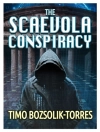In ‘The Murder, ‘ Anton Chekhov crafts a compelling exploration of moral ambiguity and the complexities of human nature, all while employing his signature understated prose and keen psychological insight. The story centers on a seemingly trivial crime that spirals into a profound reflection on guilt, responsibility, and the societal forces that shape morality. Chekhov’s concise narrative style and sharp dialogue effectively convey the tension between individual desires and collective ethics, making the story a powerful examination of the darker aspects of human behavior, particularly in the context of late 19th-century Russian society, where issues of corruption and injustice were prevalent. Anton Chekhov, a physician by training, became one of the foremost playwrights and short-story writers of his time. His background in medicine and careful observation of human behavior informed his narratives, allowing him to create deeply relatable characters. Chekhov’s understanding of the human psyche is evident in ‘The Murder, ‘ which reflects his desire to delve beyond the surface of social interactions and explore the often uncomfortable truths of the human condition, a theme that resonates throughout his oeuvre. This work is highly recommended for readers interested in psychological depth and ethical dilemmas. Chekhov’s exploration of the intricate interplay between personal choices and societal norms not only engages but challenges readers, prompting them to reflect on their own moral beliefs and the world around them.
A propos de l’auteur
Anton Pavlovich Chekhov (1860-1904) stands among the giants of Russian literature and is celebrated for his mastery over the short story genre, along with his significant contributions to the evolution of modern drama. Born in Taganrog, Russia, Chekhov initially pursued a career in medicine, famously declaring, ‘Medicine is my lawful wife, and literature is my mistress.’ Despite his medical career, he found his literary call, detailing the complexities of human nature and society with a poignant brevity and psychological depth that has resonated through the ages. Chekhov’s style, characterized by its conciseness, subtle irony, and an artful blend of comedy and tragedy, has influenced not just Russian but global literature. His works often explored themes of futility, the trivialities of daily life and the human condition, portraying the realities of Russia’s various social classes with empathy and realism. Among his most notable short stories is ‘The Murder’, which exemplifies his skill in constructing narratives that illuminate the human spirit amidst struggle and moral questioning. Chekhov’s legacy is also cemented through his plays, ‘The Cherry Orchard’, ‘The Seagull’, ‘Three Sisters’, and ‘Uncle Vanya’, which continue to be performed widely, demonstrating the enduring relevance of his observations about the dynamics of family and the burdens of existence. Chekhov’s artful narrative economy and insight into human nature ensure his place as a luminary of literary history.












